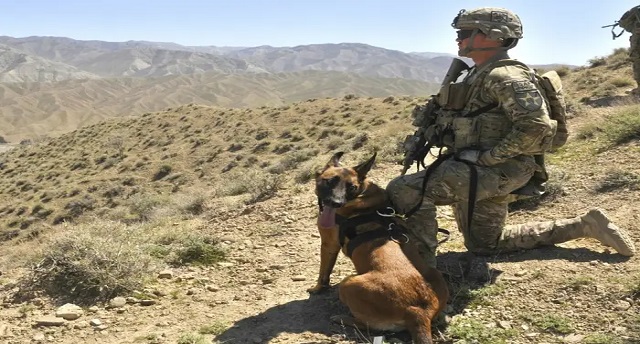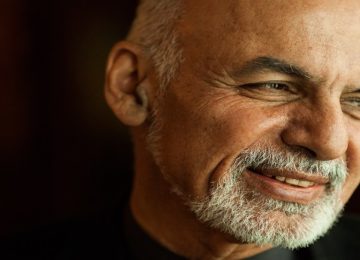May 28, 2020
Trump wants to pull out of Afghanistan early. He’s right.
You will no doubt be shocked — shocked — to hear that the situation in Afghanistan is a mess.
Under the peace agreement signed in February, the US will withdraw all its forces from Afghanistan by May 2021 if the Taliban generally behaves itself, which it isn’t. The Taliban is murdering Afghan soldiers by the dozen daily.
But now comes news that President Trump may want to accelerate the US withdrawal, and bring all US personnel home by November. Defense Department officials are briefing him soon with a choice of five options for winding down the war. Tea-leaf reading suggests Trump wants a preelection exit, and the Pentagon and Senate allies are leaking that news to prompt a backlash that will slow the exit till May 2021. Afghan war hawk Sen. Lindsey Graham, right on cue, has called the plan for an early exit “horrendous.”
Trump undoubtedly believes bringing everyone home will be a fine campaign bauble, and maybe that’s the only reason he’s pushing for a quick pullout. But he’s also right that the sooner the better. For 19 years, the generals and their hawkish pals in Congress have been telling us a delusional story about a war that could be won, direly warning of regional destabilization and global terrorism if we left Afghanistan.
But it’s long past time to face the fact that we have lost the war. We cannot defeat the Taliban. This is a painful admission, since so many Americans fought so well and so nobly to try to protect the country from the Taliban’s theocratic thugs. It’s even worse because we also know that many Afghan allies who helped us will suffer at the hands of the Taliban when we leave. And the region may well become more unstable.
But we can’t fall victim to the sunk-cost fallacy. The fact that we’ve been there 19 years, lost 2,300 service members, spent trillions, and haven’t achieved our goal shouldn’t make us want to stay longer. It should make us want to get out tomorrow, and not waste one more life or one more dollar on a lost cause.
The rules are for thee and not for me.
The DOJ has ended its investigations of Sens. Kelly Loeffler, Jim Inhofe, and Dianne Feinstein for having dumped stocks shortly before the COVID-19 crisis hit. But North Carolina Republican Richard Burr, who suspiciously unloaded up to $1.72 million in stocks — mostly hotel stocks — remains under investigation.
At the same time, across the Atlantic, approval ratings for Prime Minister Boris Johnson and his Conservative Party are in freefall amid reports that Johnson’s top adviser, Dominic Cummings, flouted quarantine rules at least once and possibly repeatedly in April. Johnson’s approval rating has dropped 26 points in two weeks.
What the Burr and Cummings stories share is their “rules are for thee and not for me” quality. Humans are generally fair-minded creatures: We’re willing to accept all kinds of suffering as long as we feel it’s shared. But when someone in power grabs or sneaks special privileges we don’t get, or even benefits from our collective suffering, it provokes a deep, rageful fury that can overcome even partisan loyalties.
Assuming Burr escapes prosecution, he is lucky that he doesn’t face reelection till 2022, enough time for voters to forget. It’s hard to see how Cummings lasts the week, given that even conservative media is now baying at him.
We’re going to watch it. Of course we’re going to watch it. Crewed spaceflight thrills like nothing else in human experience. The sight of two people strapped to the top of a missile and hurled into the terrifying blackness of space, the engineering required to build such machines, the mathematics required to launch the Crew Dragon capsule exactly into the path of the ISS: These dazzle and exhilarate. It is human ingenuity and courage at their most glorious.
And yet. And yet.
Here we are, 63 years in the space age and crewed spaceflight seems oddly pointless. Our deep-space probes and telescopes are miracles that have brought us flybys of planets and glimpses of the beginning of the universe. Our satellites have given us instantaneous communication and inch-perfect mapping, and the extraordinary benefits of those technologies.
But crewed spaceflight has brought us only imagination and inspiration. We haven’t figured out how to fly humans into space in a way that’s safe, useful, and cost-efficient. Space is too dangerous for humans, and it’s hideously expensive merely to keep a tiny number of people in orbit just outside the atmosphere. The ISS rattles along, the galaxy’s most expensive rat maze, staffed by astronauts whose main job is just keeping the thing from falling apart.
And the risks and costs and dangers just get higher the farther we go. We haven’t gone back to the moon because it’s not clear what we would do there, and the moon dust is so dangerous that we almost certainly couldn’t live permanently there. Mars is the next closest option, yet it’s too far away. Everywhere else, forget about it!
If only we could find some other human earthbound endeavor that inspired the same curiosity, filled children with the same joy and excitement, but brought us something more useful, more quickly.
Source: Business Recorder.








